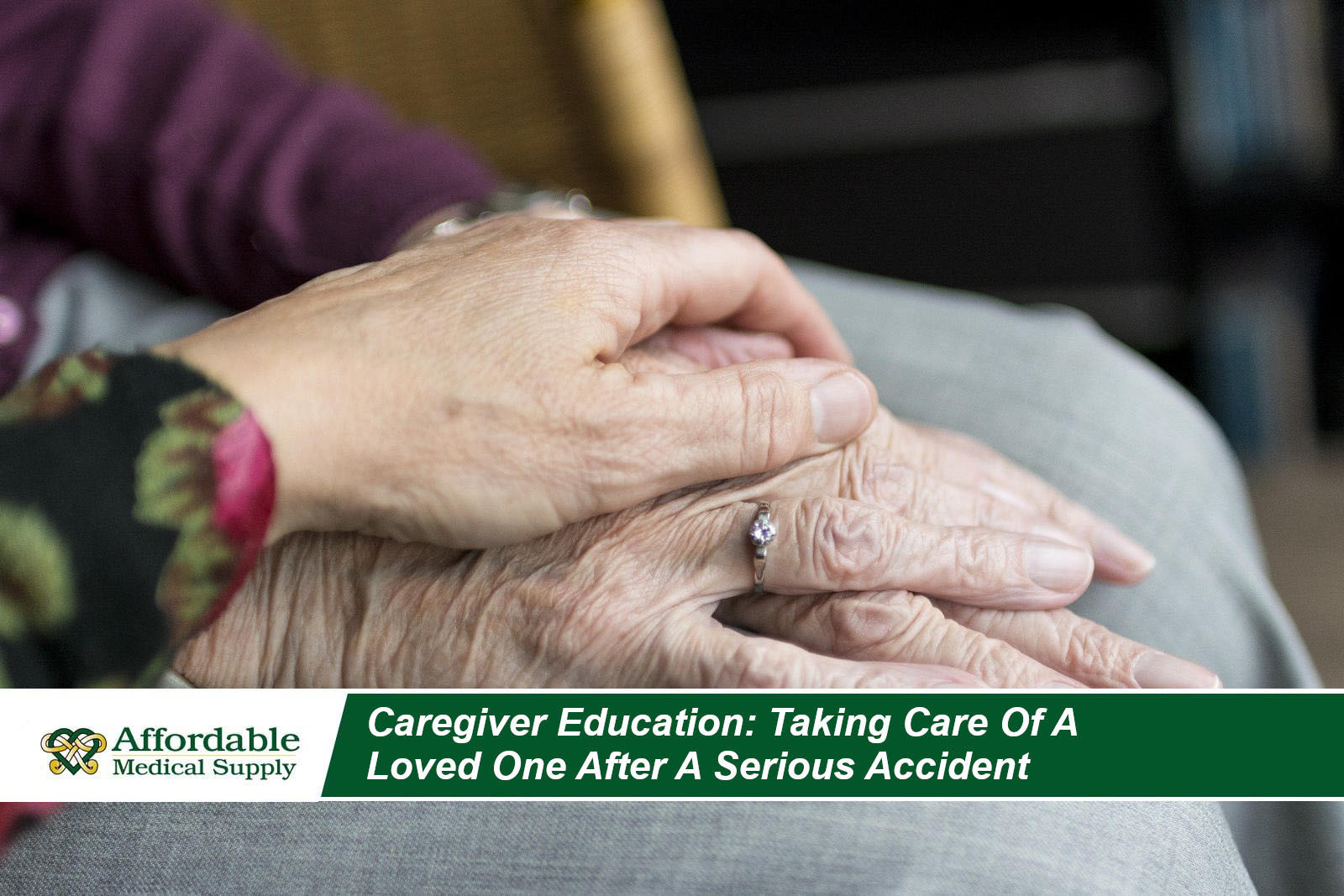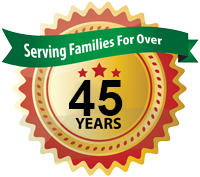Caregiver Education: Taking Care Of A Loved One After A Serious Accident

Family members are often called on to be caregivers to those involved in serious accidents. They have to step up, educate themselves and rise to the challenge of looking after their injured loved one. Accidents happen quickly and the consequences are something one can’t factor in ahead of time. Discovering tips to help with caregiver education can help those who find themselves in the caregiver role unexpectedly.
Short & Long-Term Equipment Needs
It was a slippery bathtub that caused George Randall to fall and break a hip. For a fit, agile, man, a broken hip changed George’s normal life dramatically. For his wife, Ruth, life changed too as she stepped into the role as primary caregiver without any previous caregiver education or experience. Ruth felt her lack of knowledge overwhelming as she’d never taken care of a patient post-surgery before. Her days centered around helping George with all the things he could no longer manage by himself. Being able to rent a walker for George made it easier on the family than having to buy one for his relatively quick recovery.
While George’s recovery took time, he healed well enough to leave the walker behind. Not all families get to return to life as it was before the trauma hit. For stroke patients or those who suffer heart attacks, life on the other side can look very different. With the right caregiver education, it is possible to find a way forward that is hopeful and happy for both caregiver and patient. For long term equipment needs, Affordable Medical Supply offer a full range of specialized equipment too.
How A Traumatic Accident Affects Families
Seeing a loved one in hospital after the traumatic event can be intimidating. The foreignness of the medical environment and equipment, medical staff and visitor protocols can be overwhelming. If your loved one is in ICU (intensive care unit), you might find visiting hours and the number of visitors extremely limited. Simply seeing a loved one weak and unable to do everyday things for themselves can be emotionally unsettling. Feeling this way is normal and does settle with time.
On a practical note, families may need to rearrange their schedules, work life, homes, and furniture to accommodate the recuperating loved one and make it easier for the caregiver to fulfill their new role.
Practical Tips For Caregivers
Becoming your loved one’s primary caregiver may require substantial lifestyle changes and the best thing you can do is educate yourself and go into your task armed with knowledge gleaned from those who’ve been there and learned from experience. Be sure to investigate what medical equipment is available to help you take on the challenge.
Here are a few practical things you can do that will make your task easier and help you conserve your energy.
- Keeping Friends & Family Updated. As soon as you are able, set up a blog, social media page or group to keep family and friends updated. Once this up and running, you only need to post updated news and progress in one place, rather than spending a lot of time communicating individually. Your energy will be needed for caring and the more ways you are able to save your energy, the better.
- Track Medical Appointments, Events & Medications. Get a diary specifically for all the medical things you must remember for your loved one. This also serves as a good history of care should you ever need to recall details.
- Dealing With Doctors, Medical Professionals & Therapists. Keep a note of all the questions you want to ask—it’s easy to go blank when faced with a busy professional. Don’t be scared to ask your questions, you have a right to know the information you need, to best look after the patient. The medical professionals who are treating your loved one are a vital part of educating you to be an excellent caregiver in their absence.
- Coping Through Hospital Time. Your usual schedule will suddenly be structured around visiting times. Make sure you get enough rest and try eating regular, healthy meals as far as possible. Take walks, get outside for fresh air and sunshine. Remind yourself that this too, shall pass.
- Expect Anger & Frustration. Your loved one is likely to get angry at or frustrated by their situation and take it out on you. Try not to take it personally, just know that it’s part of working through the myriad of emotions that emerge as they face the changes in their body and life. In moments that are too much, give yourself permission to walk away, leave the room and find a place to calm down before going back.
- Pacing Visitors. You’ll need to find a balance between allowing friends and family to visit and creating space for rest and recovery. Your loved one will tire quickly, and they need rest to facilitate healing. You may need to go as far as booking visits in a diary to keep the balance.
How The Right Equipment & Caregiver Education Can Help
Traumatic injury can make it necessary for a family member to become a caregiver, either part or full-time. Often, caregivers have had no formal training for the task and take it on out of necessity. If you find yourself in this position, we are here to help you. Our staff members can advise you regarding a variety of equipment that will make your task easier. Our staff will give you a private consultation to assess your needs and offer advice and assistance. Call us today at 866-484-7599.



